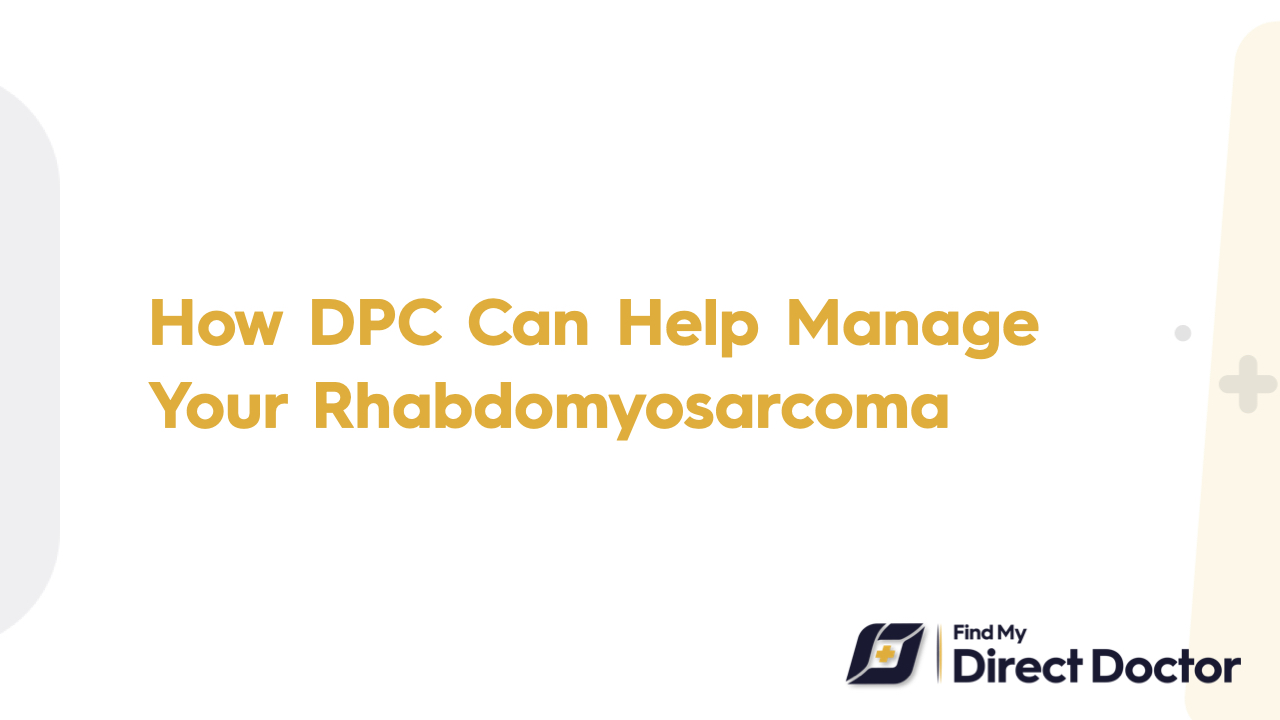



Most frequently occurring in children and teens, rhabdomyosarcoma is an uncommon and severe kind of cancer that starts in the soft tissues, usually the skeletal muscles. It can affect the reproductive and urinary systems, the head and neck, and the limbs, among other areas of the body. Depending on where the tumor is located, symptoms can include pain, swelling, a noticeable lump, or trouble with basic body functions like swallowing, urinating, or moving the eyes. Improving outcomes for patients with rhabdomyosarcoma requires early detection and treatment.

By guaranteeing that patients receive individualized, ongoing care throughout their course of treatment, Direct Primary Care (DPC) helps manage rhabdomyosarcoma. DPC providers manage side effects, coordinate care, and offer general health assistance, whereas oncologists and specialists normally supervise cancer therapy. By maintaining general well-being, facilitating connection with specialists, and offering advice on how to cope with the condition's emotional and physical effects, they provide patients and their families with a reliable point of contact.
Patients with rhabdomyosarcoma can benefit greatly from DPC's patient-centered approach, which improves accessibility and care coordination. For guidance, symptom management, or help navigating complicated healthcare systems, patients can readily contact their DPC providers. DPC guarantees that patients retain their general health throughout cancer treatment by emphasizing preventive and comprehensive care, addressing concerns like mental health, nutrition, and treating chronic illnesses that may make their total recuperation more difficult.
In a DPC context, rhabdomyosarcoma management relies heavily on individualized care. In order to ensure that assistance goes beyond cancer treatment and encompasses holistic health and well-being, providers develop customized programs that are centered on each patient's particular needs. This could entail routine examinations to track the effectiveness of treatment, consultation with oncologists, and advice on palliative care or rehabilitation. DPC makes sure that patients and their families feel supported and educated at every stage by cultivating a caring and cooperative environment.
Previous Post